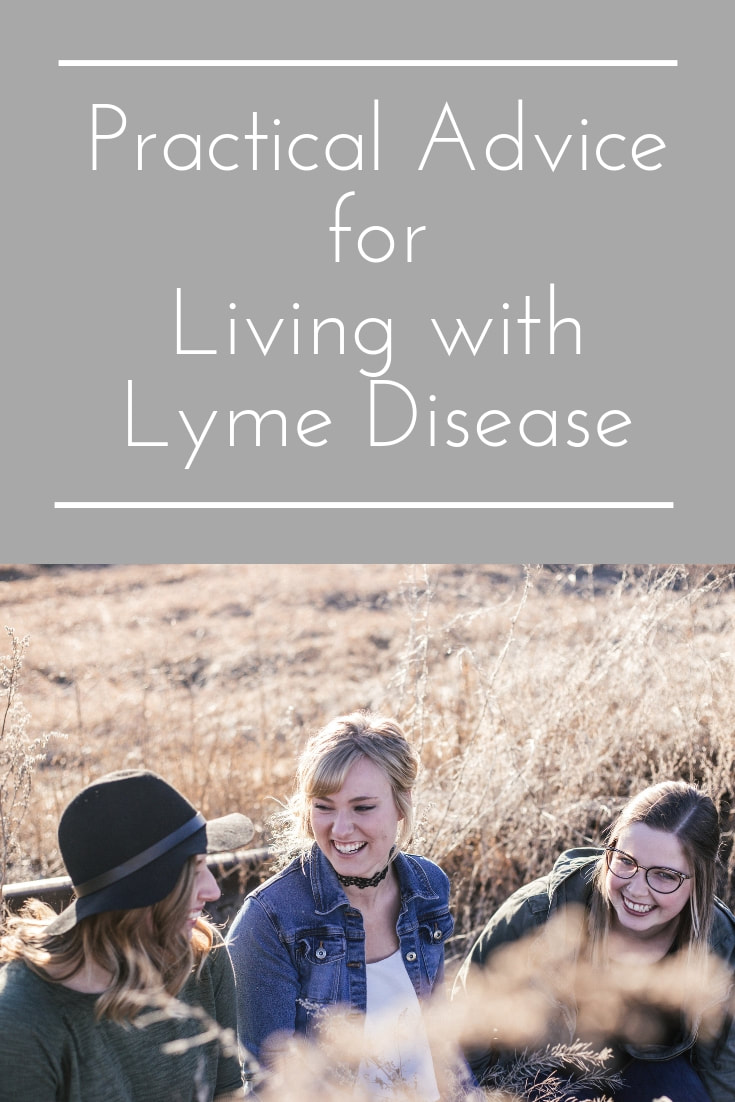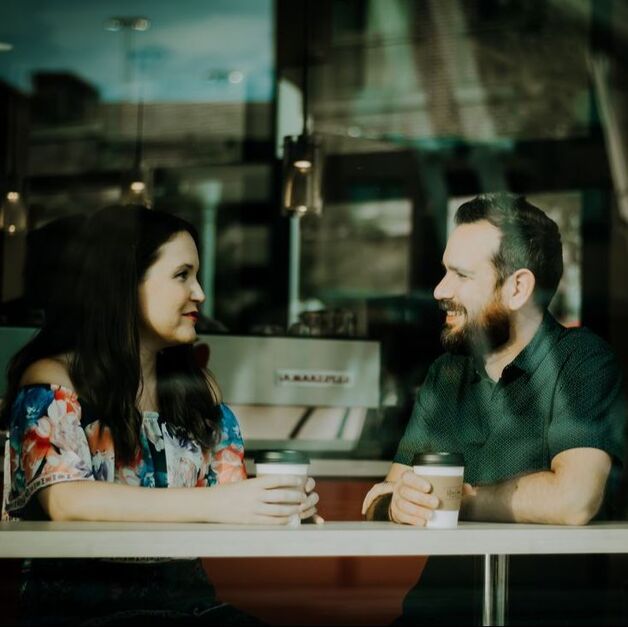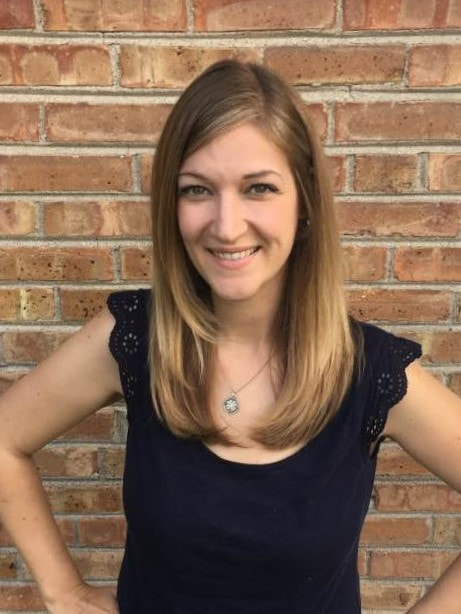|
Most of the links on this post are informational, but a few are affiliate links to help maintain this website. Thanks to the numerous knowledgeable Lyme patients and experts, there is a great deal of information available about living with Lyme disease. I've compiled some of the best advice I've heard and consolidated it into this post. As with any other form of advice, run it through your personal filter, take what applies to you and leave the rest. Advice for Living with Lyme Disease: 1. Many things will get better, some will get worse. For many Lyme patients just getting a diagnosis is a giant leap in the right direction. After that you will start treatment. Treatment for Lyme is like the song Opposites Attract by Paula Abdul. You take two steps forward and two steps back. Sometimes if you're lucky it's only one step back. It will be forward and back until you reach the end goal of remission. It's easy to lose heart with so many setbacks, but if you keep going forward it will pay off. 2. Write down your current symptoms and track your symptoms over time. When you've had Lyme for a long time, sometimes it's hard to remember if a symptom is new or something you've experienced before. Track your symptoms on a calendar, so you can go back and see if you were experiencing the same symptom during that season. It's time consuming, but it's been very helpful at doctor's appointments. 3. Always keep a copy of your current medications and supplements on hand. With all the changes in medications from month to month it can be hard to keep track. Keep a list of all medications and supplements in a GoogleDoc and then update it after each change. You will be asked 50 bajillion times to list your medications on forms. Because Lyme patients tend to be on so many, it's more painless to just carry an updated list and attach it to forms rather than writing them all out over and over. 4. Come up with a plan of what you will say to conventional doctors. It will catch you off guard every time you see a new doctor. What should you say? Do you tell the truth and risk being told what you have doesn't exist, or do you skirt around the subject? Some patients bring current Lyme research along with them to present to doctors, some choose not to mention it. 5. Go with your gut. You will hear a lot about how the treatment you chose is "bad." Antibiotics are terrible. Herbals aren't strong enough, etc. You need to decide what is right for you and what makes you feel better. Think of your doctor as an exceptionally experienced and knowledgeable guide, but ultimately the choice is yours, because you're the one who has to live with it. 6. Let go what no longer serves you. Lyme is here to tell you something. It's here to tell you that we need to make major changes in our life. When you have Lyme you have to go through a physical and mental house cleaning. Do you need to let go of a job, a relationship, a behavior, a habit? It's time to do some deep soul searching and put yourself first for a change. Each day you will learn something new on this journey, adding up to a lot of wisdom you will be able to take with you into your future life. "Time gives good advice." - Unknown
0 Comments
Most of the links on this post are informational, but a few are affiliate links to help maintain this website. By Crys Baysa Lyme disease is full of lessons to cherish. I know this may seem contradictory, because in many ways, we feel held back in life, and we see all the potential things we could do if only we weren't sick. It's easy to make a list: "I could have gone to college," "people would take me seriously," "I could contribute better to my family or the community." The list goes on and on. But at the same time, we have also gained things that others haven't. Much of this isn't physical gain, it's character gain. 1. Lyme Disease is a Time to Learn. Let me ask you a question. What was your life like before Lyme disease? Of course for some of us, we were sick all our lives. I know what you're probably going to say: "I could do this and that," "I could hold a job," "I could run a mile," "I could play sports." It's easy to make a list of the physical things we were able to do before Lyme. It's also easy list the things we could do with our friends before we had such limitations. Now let me ask you something else. What was your character like before? How much did you know about illness? How did you consider people who had illnesses? I'm not saying we were bad people before. By all means, you were probably a compassionate person. But what I'm saying is more along these lines: Say you're reading about lime-lemonade. You've gotten books about it, you've studied it. You've read recipes on how to make it. You've read descriptions about it from people who have tasted it until it's almost like you can taste it yourself. But you've never had it before. Fast forward a few weeks. Now is your first ever opportunity to taste it. And once you have, you're like, "Huh this is different than I thought." That's not saying the descriptions are inaccurate. That's not saying that you didn't have a glimpse of understanding. You probably had heard how good it tasted. When you tasted it, it was every bit as good and every bit the way they described it. But now you have a personal experience that brings much more understanding than you ever had before. And you realize that you never really understood the lime-lemonade drink before now. That's what it's like to have a chronic illness. You can read about it all you want but nothing beats personal experience. And once you have it, you have not only a greater understanding than before, but develop a greater compassion. 2. Times of Trial Develop Your Character. After you get a chronic illness, your view of the world changes. It's these views that we need to teach each other and cherish. Let's face it, not everybody is going to have a controversial disease like Lyme disease. And so, it's our duty to educate the world, even if they will never understand entirely. We can still give them a glimpse. That's what the people who had tasted the lime-lemonade did. They wanted the world to understand, so they tried to educate people. But it's more than that. When we develop a true understanding, we see that the world is not black and white, but grey. We're not as quick to make assumptions. We see that most things are not cut and dry. Going through times of trial forces us to see what's wrong in the world. Often times, it's things that are wrong with society, such as the character of society. For example, when we go through Lyme disease, we see that many people judge by what they see. It's a seeing is believing mentality. They expect to see you with a cane or a wheelchair before they believe you're disabled. Even if your tests show that you are positive for Lyme, if you don't fit what they imagine, they won't believe you. It's amazing how much you learn about the world when you go through trials. We need to cherish these lessons. Lyme teaches us how not to be. It teaches us not to judge a person based on our own experiences. Because, if we don't learn these lessons, then we're no better than the people who judge us by how we look. 3. Lessons Are Not Always About Character. The lessons we learn are not always related to character development. Sometimes it's for information. We're forced to learn how the body works and how the health system works. I bet we know more about healing than some people who are healthy. I know most of us had no intention of going into the medical field. So what is the point for learning all these things? That's assuming we're going through this so that we can develop knowledge. Well the first answer is in line with the lime-lemonade example: nothing beats personal experience when it comes to gaining knowledge. They say knowledge is power. I disagree. Knowledge coupled with self-discipline is power. That's because you can have all the information in the world, but if you don't have the self discipline to see it through, then it's useless to you. Also, self discipline comes through experience. Knowledge isn't really knowledge without experience. It's just theory. Until it is put in practice, and until one has the self discipline to use it, it's still theory, even if it's true. But why do we need this? Maybe it's not necessarily for our benefit. Maybe there's someone in the future that needs the knowledge we are gaining now. It could be that by getting, fighting, and treating this disease, we are gaining the knowledge to help someone else with Lyme or another chronic illness. Knowledge is not always just about us. It could also be that the knowledge will come in handy and useful for us someday in the future. Maybe we will want a career in the medical field. Then we'll have had the experience of being on the other side. Or, maybe, someday we might get sick again (after we're healed, of course). Then we'll have the knowledge of how to get better faster. These are just possibilities that are very valid, but none the less possibilities. 4. Let's Take Advantage of this Opportunity. This is probably not the situation we wanted. This is probably not the way we intended to educate ourselves about the world. But this is the situation we are in. I'll admit, it's a difficult trial. But this doesn't mean that this can't be every bit of an opportunity. We may still want the other opportunities, and that's fine, but we also now have a view of the world that others don't have. We need to keep it, and to cherish it. It may be, that this will be helpful for us in the future someday.  Crys Baysa is chronically ill blogger who has learned a lot of practical knowledge and alternative perspectives due to her chronic illness. These lessons, though hard and painful, have gained her insight and knowledge into the world of being ill. "I've learned that you shouldn't go through life with a catcher's mitt on both hands; you need to be able to throw something back." - Maya Angelou
|
WelcomeI'm Kerry (She/Her/Hers) and I am a licensed therapist, group facilitator, poet, writer, & speaker. This is a place to acknowledge and validate our suffering and trauma, while also learning how to turn toward aliveness and spaciousness. Categories
All
Archives
April 2024
|
|
Copyright © 2024 Kerry J Heckman All rights reserved. Disclaimer.
|
|






 RSS Feed
RSS Feed